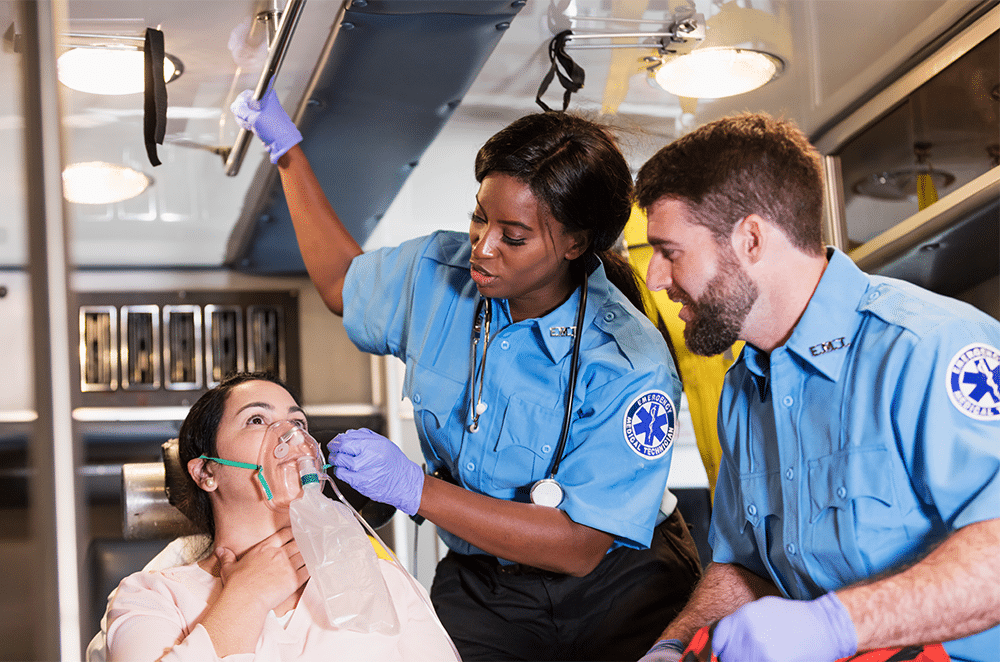
First responders play a critical role in South Carolina’s emergency services and safety forces. They are the first on the scene of a traffic accident, crime, or natural disaster. First responders such as firefighters, law enforcement officers, paramedics, and emergency medical technicians often find themselves in dangerous situations and may sustain serious injuries while performing their jobs.
First responders may be eligible to receive workers’ compensation benefits for physical injuries sustained in the line of duty. These benefits also extend to auxiliary police officers and volunteer firefighters and rescue squad members.
If you are a first responder who has been injured on the job and you are having difficulty obtaining workers’ comp benefits, contact Joye Law Firm for help.
Common Emergency Responder Injuries Suffered on the Job
First responders have some of the most dangerous jobs in the United States. Their work exposes them to many hazards including fires and explosions, collapsed buildings, being struck by vehicles, natural disasters, flooding, hazardous chemicals, violent assaults, electrical shock, and terrorist incidents.
The injuries commonly suffered by first responders include:
- Concussions – A concussion is a type of mild traumatic brain injury (TBI) that can occur when a first responder suffers a blow to the head. While concussions may cause a brief loss of consciousness, they are typically not life-threatening. Concussion symptoms may not appear right away; therefore, first responders may not realize they have a head injury initially. Symptoms include difficulty maintaining balance, impaired coordination, slurred speech, inability to concentrate, memory problems, and seizures.
- Broken bones – Broken bones, or fractures, are some of the most common types of work injuries. You can suffer a broken bone in many types of emergency work. Some first responders, such as law enforcement officers and ambulance personnel, spend many hours on the road and are at increased risk of traffic collisions both in and out of the vehicle when responding to calls. Fractures sustained in motor vehicle accidents are a common type of injury sustained by law enforcement officers in the line of duty.
- Internal organ damage – Any kind of trauma can lead to severe injuries to internal organs. Common trauma-related internal organ damage includes:
- Punctured lung caused by broken ribs
- Kidney damage
- Ruptured spleen
- Liver or bowel damage
- Burn injuries – Firefighters are frequently exposed to flames and smoke, and are especially susceptible to burn injuries while performing their jobs. A burn injury may cause deep tissue damage that results in extensive scarring and requires a lengthy recovery. Types of burn injuries include:
- Thermal burns (fires, hot metal)
- Chemical burns
- Electrical burns
- Explosions
- Lacerations – Lacerations are deep cuts or tears in the flesh. These injuries can occur in virtually any industry but are common in first responders due to the dangerous nature of their work. Lacerations may occur in a traffic accident or when a first responder doesn’t have the proper safety gear.
- Torn ligaments – Police officers may hurt their knees, legs, or feet when chasing a suspect. Torn ACLs and Achilles tendons are some of the most common ligament injuries.
- Overexertion – Overexertion occurs when a first responder strains or sprains a muscle or ligament, or slips a disc from lifting, pulling, pushing, or turning an item. Overexertion can happen when a firefighter is pulling a fire hose or when an EMT is carrying someone on a stretcher.




